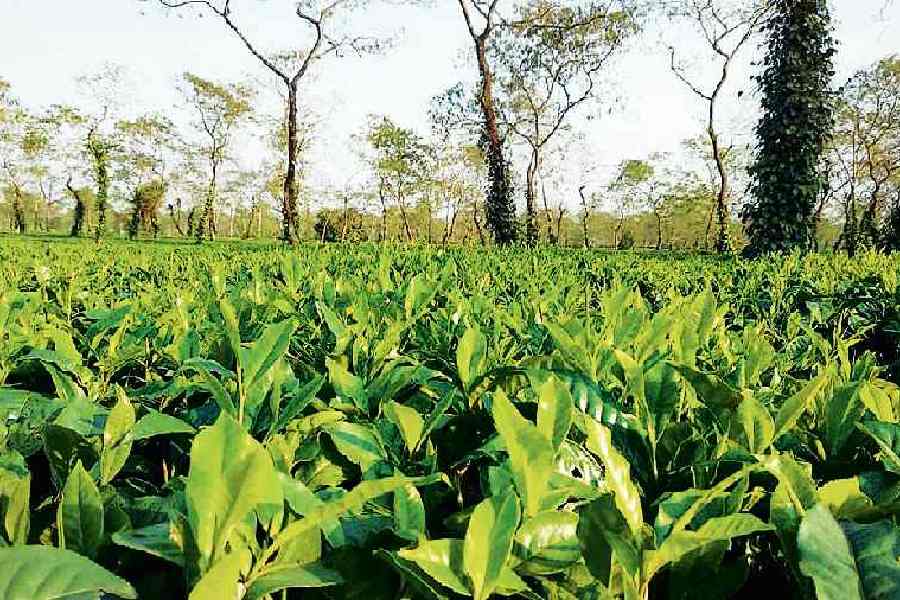The Indian Tea Association (ITA), the largest body of estate planters, has sought Rs 50 a kilo financial assistance from the Mamata Banerjee-government to revive the ailing Darjeeling tea industry.
ITA chairman Atul Asthana wrote a letter to chief minister Banerjee early last week seeking a financial package which includes a transport subsidy, interest subvention on working capital loan, apart from the orthodox subsidy of Rs 50 a kilo.
There are 87 gardens in Darjeeling which are protected by geographical indication (GI), employing about 55,000 permanent and 20,000 casual workers.
About 11 gardens are closed or abandoned due to financial stress in the system and barring 15-odd, the rest are widely believed to be up for sale even as there is hardly any serious interest from buyers.
While the industry estimates the loss is about Rs 200 per kilo on average, the fiscal assistance sought by the ITA from the Bengal government would be around Rs 56-57 a
kilo.
Put together, the financial impact on the state exchequer will be Rs 40.5 crore a
year, going by the average annual production of 7 million kg.
However, the actual production in 2023 (up to November) was only 6.07 million kg, which would translate to even less financial commitment for Bengal.
Asthana, who is also the managing director of Goodricke Group Ltd, drew the CM’s attention to the ‘acute financial crisis’ being faced by the Darjeeling tea industry over the last few years due to the rising cost of production amidst stagnant prices.
The letter, reviewed by The Telegraph, listed out why the viability of the Darjeeling tea, one of the best-known and globally recognised natural produce from Bengal and India, is at stake.
A lethal combination of low yield due to hilly terrain and falling demand in the wake of a surge in Nepal tea import is hurting Darjeeling gardens badly.
Despite the poor crop, the planters are still finding it difficult to extract remunerative prices for their produce from the domestic as well as export markets.
While the average cost
of production is about Rs 650
a kilo, the average price fetched in the auction was about Rs 325.95 a kilo in 2023, Asthana pointed out in the letter.
Even though the first and second flush, the spring and the summer produce respectively, fetch high prices in the export market, revenue from these two crops is not enough to cover losses from the rest of the production.
According to an independent estimate, only 30 per cent of Darjeeling tea production is selling above the cost of production.
On Saturday, Asthana and a bunch of planters from Bengal and Assam met Union commerce minister Piyush Goyal in Calcutta, where concerns about the viability of the Darjeeling tea industry were discussed at a closed door meeting.
“Darjeeling tea is in dire straits. We are seeking assistance from everyone — the state and the Centre. If
the situation continues to deteriorate, gardens will not survive,” Asthana said this evening.
The ITA is seeking a Rs-50-a-kilo subsidy to incentivise the export of Darjeeling tea for three years. Moreover, it is pleading for interest subvention on working capital loan at the rate of 5 per cent for five years.
The annual fiscal impact is calculated to be Rs 3.5 crore for the state.
Additionally, the planters are also seeking a transport subsidy of Rs 3 a kilo which would translate to Rs 2 crore annual expense for the
state.
Apart from the fiscal incentives, the planters’ body is also seeking non-fiscal intervention from the state.
Topping the wishlist is the imposition of a minimum import price from Nepal tea. Import from the Himalayan neighbour stood at 17.36 million kg in 2022, at an average price of 135.19 per kilo.
The widening gap between Darjeeling’s cost of production and the selling price of Nepal teas in India is distorting the marketplace with many domestic packet tea makers opting for cheaper Nepal in their blend instead of Darjeeling.
As a result of falling demand, the auction prices are on a downward spiral and in turn impacting the private sale price.
In overseas markets, Nepal tea is replacing Darjeeling in blends where the sellers are trying to keep costs down. Only teas that are sold specifically as Darjeeling are protected from the Nepalese onslaught thanks to the GI tag.
The ITA has also lobbied the Union commerce ministry for this. However, no action has so far been taken due to the geopolitical sensitivity attached to India-Nepal relations.










